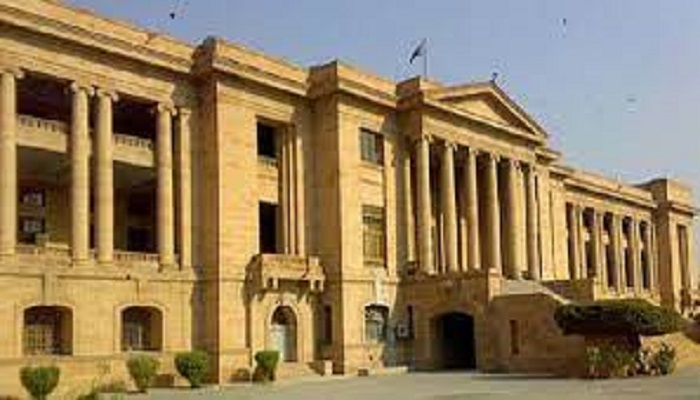Sindh High Court (SHC) on Tuesday ordered to maintain status quo in the case of appointment of Dr Samreen Hussain, wife of Sindh Higher Education Commission (SHEC) Chairman Dr Asim Hussain, as executive director of the commission.
The interim stay was granted by a two-judge bench headed by Justice Aftab Ahmed Garor on the petition of Abdul Ahad Ahmed Khan questioning the conflict of interest involved in the appointment of Dr Samreen.
The petitioner stated that an advertisement for the appointment of the executive director of SHEC was published in newspapers when she was a member of the selection board of SHEC. However, the applicant pointed out that the selection board rejected all the candidates selected for interview.
Read more: SHC extends status quo about Dr Asim Hussain’s appointment as SHEC chairman
He added that another advertisement was published in the newspapers, and this time, Dr Samreen also applied for the post of executive director and was selected for the same.
He maintained that Dr Samreen’s initial appointment as a professor in 2015 was also illegal.
The bench while ordering to maintain the status quo in the matter issued notice to the Sindh government and other respondents on March 30 and directed them to file their replies.
Earlier in the day, SHC extended the status quo about a recommendation made by the provincial universities and boards department for a third-time appointment of Dr Asim Hussain as chairman of the SHEC.
Read more: Sindh higher education commission chairman’s wife selected as ED
The bench, while allowing the request, ordered the provincial government to maintain the status quo till the next hearing fixed for March 15.
The same bench had earlier granted status quo during a hearing of the petition filed by Roshan Ali Buriro, who challenged the recommendation for making Hussain head of the commission for a third term.
He submitted that the respondent was appointed SHEC chairman in 2014 and reappointed after four years despite facing a mega corruption case about charges of misuse of authority and embezzlement, thereby causing losses of over Rs462 billion to the national exchequer.



















